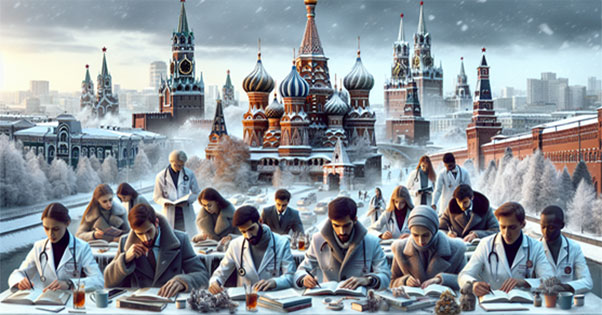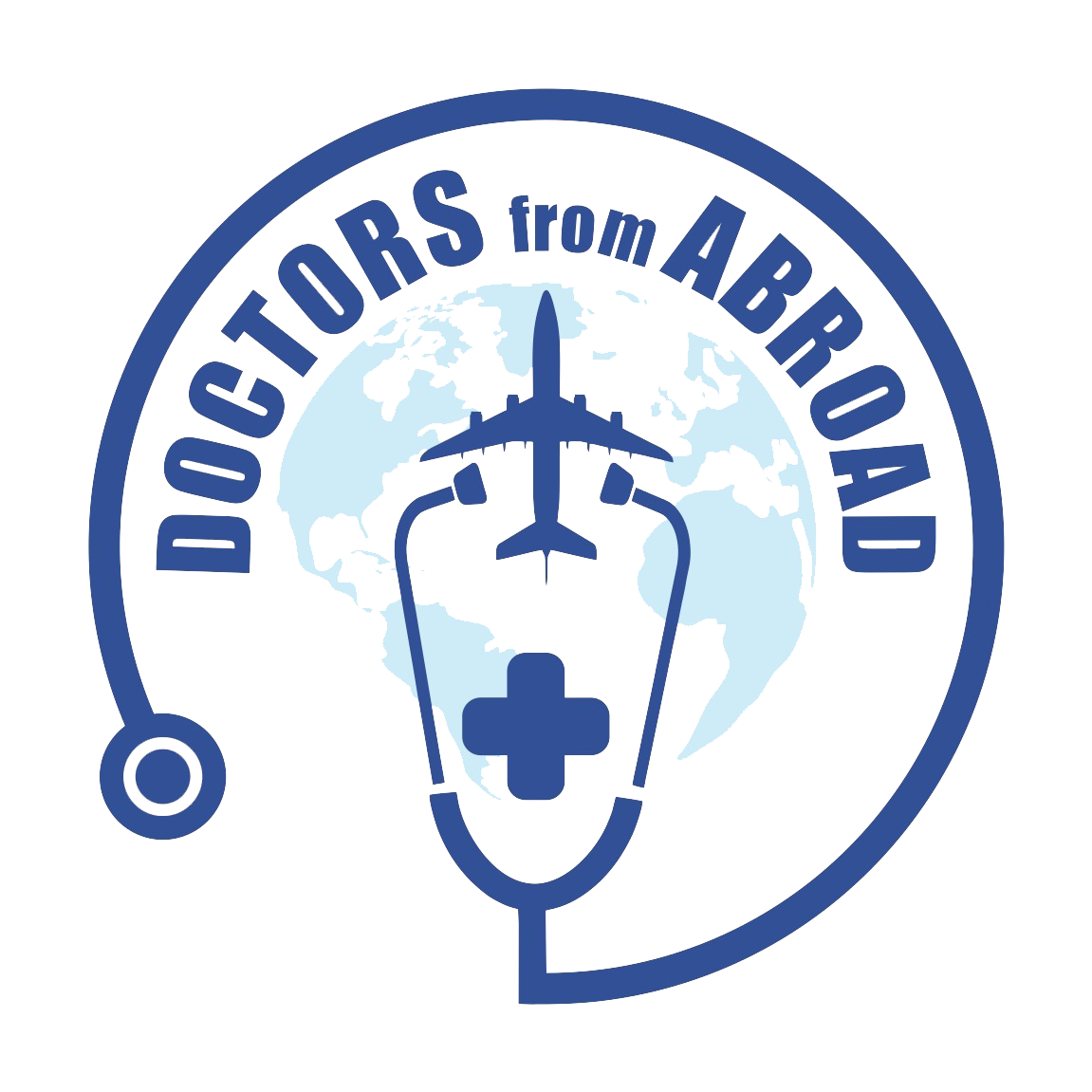The Dark Side Of MBBS In Russia
Studying MBBS in Russia presents unique challenges, including adapting to extreme weather conditions, overcoming language barriers, and navigating cultural differences, all while adjusting to a new educational system . The journey to earning an MBBS degree in Russia spans six years, a duration longer than India's 5.5 years, highlighting a significant commitment for prospective students .

Upon completing their education in Russia, graduates face the crucial step of passing the Foreign Medical Graduate Examination (FMGE) to practice medicine in India, a hurdle that underscores the importance of robust preparation and understanding of what lies ahead after earning their degree . This article aims to shed light on the often overlooked aspects of pursuing an MBBS in Russia, from the quality of education and curriculum consistency to global recognition of degrees, providing essential insights for those considering this path.
Quality of Education and Curriculum Consistency
Adaptation to Russian Medical Education System
Students embarking on their MBBS journey in Russia must acclimate to various educational aspects unique to the region. These include the teaching methods, examination systems, and overall academic expectations, which can differ significantly from those in India . The traditional teaching methodologies primarily involve lectures and textbook-based learning, which may pose challenges for students accustomed to more interactive or practical learning environments .
Infrastructure and Faculty
Russian medical universities boast modern infrastructure and are recognized by prominent organizations like the MCI, European Council, WHO, and UNESCO, ensuring that the facilities meet international standards . With a faculty-to-student ratio of 1:10, these institutions prioritize individual attention, which is crucial for medical training . Additionally, most universities offer courses in English, which can ease the language barrier for international students .
Practical Training and Research Opportunities
Hands-on clinical exposure is a significant aspect of medical training, and Russian universities provide ample opportunities for practical training in well-equipped hospitals . Moreover, these institutions are actively engaged in research, offering students chances to contribute to medical advancements . However, the availability of resources for practical training might be limited, affecting the depth of individual practice opportunities .
Curriculum and Examination Challenges
The curriculum in Russian medical universities might present variations that require students to adjust their academic strategies. This could involve learning certain subjects earlier or later than expected, which necessitates additional efforts to align with the curriculum . The examination formats in Russia, including objective-type tests and practical assessments, also require students to adapt to new testing standards .
Streamlined Admission Process
The admission process for MBBS in Russia is straightforward, requiring Indian students to first clear the NEET exam. This process ensures that only qualified students are admitted, maintaining the education quality .
Language Barrier and Cultural Adaptation
Overcoming Language Challenges
1. Primary Language of Instruction: The medium of instruction in many Russian medical universities is Russian, which necessitates Indian students to learn the language to effectively study and communicate during clinical training .
2. English Language Programs: While some universities offer courses in English, proficiency in the local language is crucial for effective communication, especially during clinical practices .
3. Adapting to Language Needs: Learning Russian not only aids in academic activities but also simplifies daily interactions and integration into the local community .
Navigating Cultural Differences
4. Understanding Russian Customs: Indian students often find Russian social norms and customs different from their own, which might require a period of adjustment to fully acclimate .
5. Maintaining Cultural Identity: To stay connected with their roots, Indian students in Russia form close-knit communities, celebrating Indian festivals and cooking traditional meals .
6. Emotional Support Networks: The role of family and friends is pivotal in providing emotional support to students, helping them overcome homesickness and cultural shock .
7. Engagement with Local Culture: Interaction with local patients and participation in Russian cultural events during clinical rotations enriches the understanding and appreciation of Russian traditions and lifestyles .
Practical Implications of Cultural Adaptation
8. Academic and Social Integration: Proficiency in Russian enables smoother adaptation to the academic environment and helps build social connections outside the university setting .
9. Cultural Sensitivity in Clinical Settings: Understanding and respecting cultural differences is crucial in clinical settings, enhancing the quality of care provided to local patients .
This structured approach to addressing language barriers and cultural differences equips Indian MBBS students in Russia with the necessary tools to succeed academically and socially.
Global Recognition of Degrees and Career Opportunities
Russian medical degrees are highly esteemed globally, recognized by key international bodies such as the World Health Organization (WHO), the Education Commission for Foreign Medical Graduates (ECFMG), and the Foundation for Advancement of International Medical Education and Research (FAIMER). This wide recognition facilitates graduates to pursue further studies or medical practice in various countries, adhering to local licensing requirements.
Career Opportunities After MBBS in Russia
Residency and Specialization
Graduates have the option to continue their medical training in Russia by enrolling in residency programs, which are available across various specialties . This further education can significantly enhance their expertise and open up more advanced career paths.
International Practice
The global acceptance of Russian medical degrees allows graduates to explore career opportunities worldwide. They can secure positions in their home countries or in nations that have educational or professional agreements with Russian medical institutions . Graduates must pass the necessary licensing exams like the USMLE in the USA or MCCEE in Canada to practice in these countries .
Research and Development
Russian medical universities provide robust training in research methodologies, enabling graduates to contribute to medical science advancements . Many find opportunities in research institutions and can play pivotal roles in global health initiatives or work with international organizations like WHO .
Establishing Medical Practices
With a Russian MBBS degree, graduates are equipped to start their own medical practices or join established medical institutions as consultants or specialists . This degree paves the way for substantial contributions to the healthcare sector, whether in clinical practice or in a consultancy role.
Recognition and Validation
It is crucial for graduates to ensure their Russian degrees are recognized by the Medical Council of India (MCI) and other relevant authorities to practice medicine in India . Successfully passing the Foreign Medical Graduate Examination (FMGE) is a mandatory step for those who wish to practice in India .
Awareness of Misleading Information
Prospective students should be vigilant about scams related to MBBS admissions in Russian universities, including misinformation about the course language and MCI approvals . Ensuring the authenticity and accreditation of the chosen university is essential to avoid such pitfalls.
Living Expenses and Climate Considerations
Living Expenses in Russia
Cost of Living Overview
The cost of living for students in Russia can vary significantly depending on the city and lifestyle choices. In Moscow, students might expect average monthly expenses ranging from 25,000 to 35,000 RUB, with significant portions allocated to food and accommodation . More affordable options are available in university dormitories, costing between 500 RUB to 5,000 RUB per month, while private accommodations can be considerably higher .
Detailed Breakdown of Expenses
10. Food: Monthly grocery costs can range from 3,000 RUB to 4,000 RUB if cooking at home, with meals at the university cafeteria around 350-400 RUB .
11. Accommodation: Shared accommodation can cost between 10,000 to 25,000 rubles per month, with utilities adding an additional 50-100 USD .
12. Transportation: With a student transport card, transportation costs are around 715 RUB monthly .
13. Healthcare and Insurance: Health insurance costs vary, generally between 6,500 to 10,000 RUB annually .
Tips for Financial Management
Students are advised to create budgets, prioritize expenses, and utilize student discounts to manage finances effectively. Cooking meals at home and using public transportation can significantly reduce monthly expenses .
Climate Considerations for Students
Understanding Russian Weather
Russia's climate varies greatly, with extreme winters that can be particularly challenging for students from warmer climates. It is essential to be prepared with appropriate clothing such as warm coats, jackets, and thermals .
Adjusting to New Conditions
Adjusting to the cold temperatures and different living conditions requires time and effort. Students are advised to gradually acclimate to the outdoor conditions by dressing appropriately and taking necessary health precautions during colder months .
Emotional and Physical Well-being
Being far from home and dealing with harsh weather conditions can take a toll on students' emotional and physical health. Establishing a support network and engaging in indoor activities can help mitigate the effects of the harsh climate .
Conclusion
Throughout this exploration of the intricacies involved in pursuing an MBBS degree in Russia, we have traversed a multitude of challenges and opportunities that prospective students might face. From the initial adaptation to a distinct educational system and braving the extreme weather conditions, to overcoming language barriers and cultural differences, the journey is fraught with trials. Yet, it is also paved with rewards, including gaining a globally recognized medical degree and the plethora of career opportunities this accolade affords. Moreover, the significance of practical training and the potential for engaging in cutting-edge medical research in Russia cannot be understated, offering a comprehensive and enriching educational experience for those willing to navigate its complexities.
As we conclude, it's imperative to acknowledge the broader implications of choosing to study medicine in Russia. This decision not only shapes the academic and professional trajectory of students but also their personal growth and understanding of global healthcare landscapes. Students are thus encouraged to thoroughly research and prepare for this demanding yet potentially fulfilling path, keeping in mind the importance of validating their degrees and navigating post-graduation challenges such as the FMGE. In reflection, the journey to earning an MBBS in Russia is emblematic of the broader challenges and triumphs faced in the pursuit of medical excellence and service on the global stage.
FAQs
What are the potential drawbacks of pursuing an MBBS in Russia?
The challenges of studying MBBS in Russia include encountering a language barrier, dealing with a high cost of living, adapting to a harsh climate, questioning the quality of education, facing safety concerns, experiencing a lack of support, and the potential difficulty in securing employment post-graduation.
Can you describe the experience of an MBBS student in Russia?
Life as an MBBS student in Russia is enriched by well-furnished accommodations and excellent university infrastructure that keeps boredom at bay. Faculty members encourage participation in diverse activities, and students can relish a vibrant multi-cultural atmosphere.
Is it safe for Indian students to study MBBS in Russia?
Studying MBBS in Russia is considered safe for Indian students. Medical universities in Russia are recognized by the Medical Council of India (MCI)/National Medical Commission (NMC) and the World Health Organization (WHO), ensuring that the MBBS degree obtained is valid and globally accepted, including in India.
What career options are available to Indian students after completing an MBBS in Russia?
After earning an MBBS degree in Russia, Indian students have a variety of career paths to choose from. These include starting a private medical practice, working in hospitals, engaging in research, or entering academia as lecturers or professors. Additionally, graduates can pursue post-doctoral fellowships to specialize in specific medical field.

